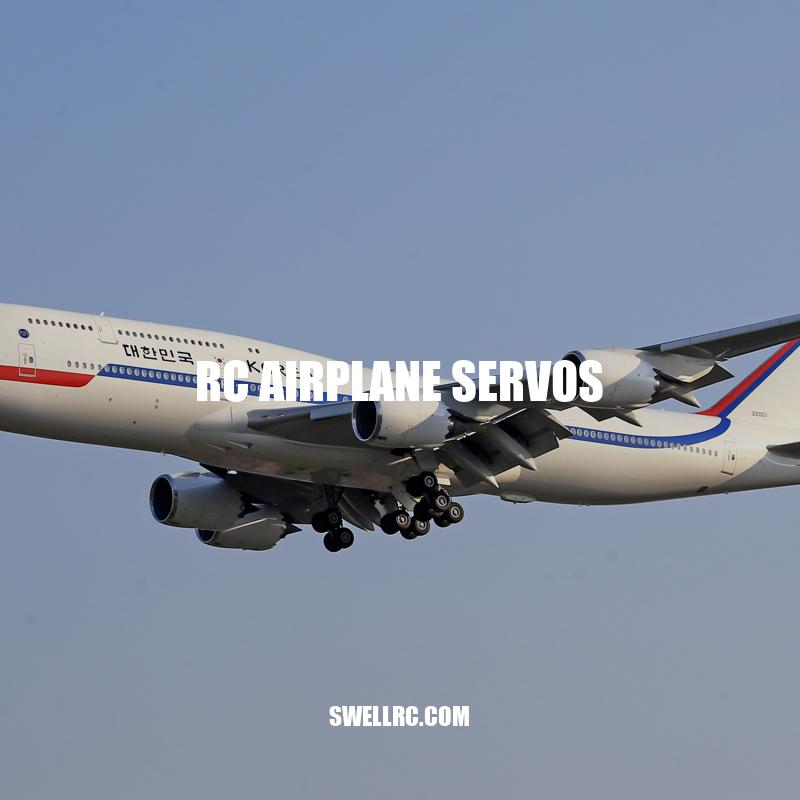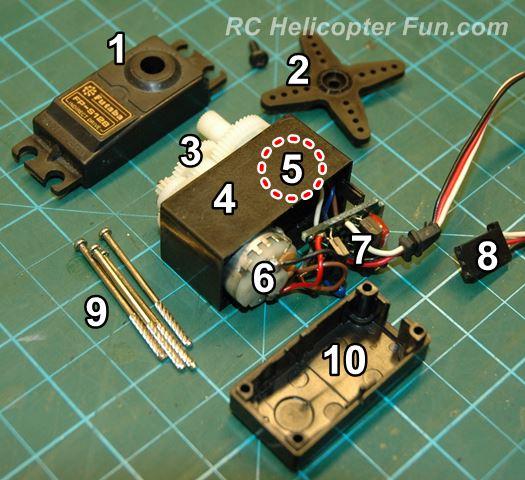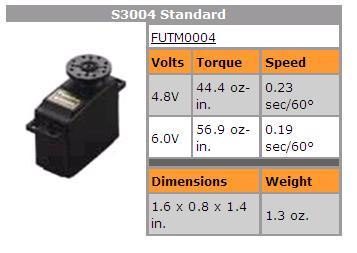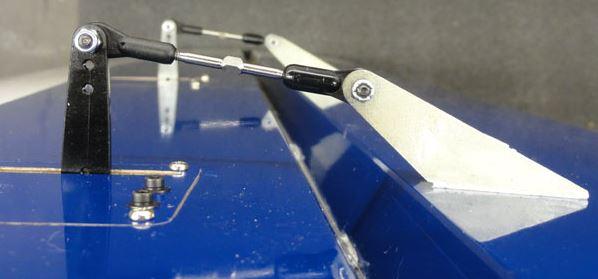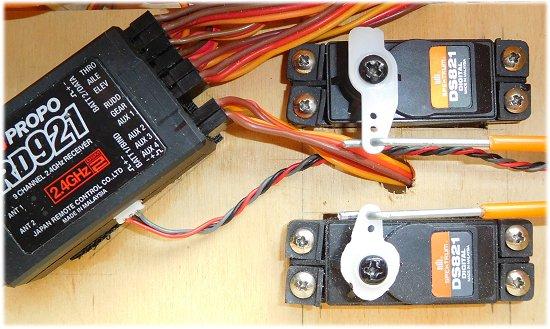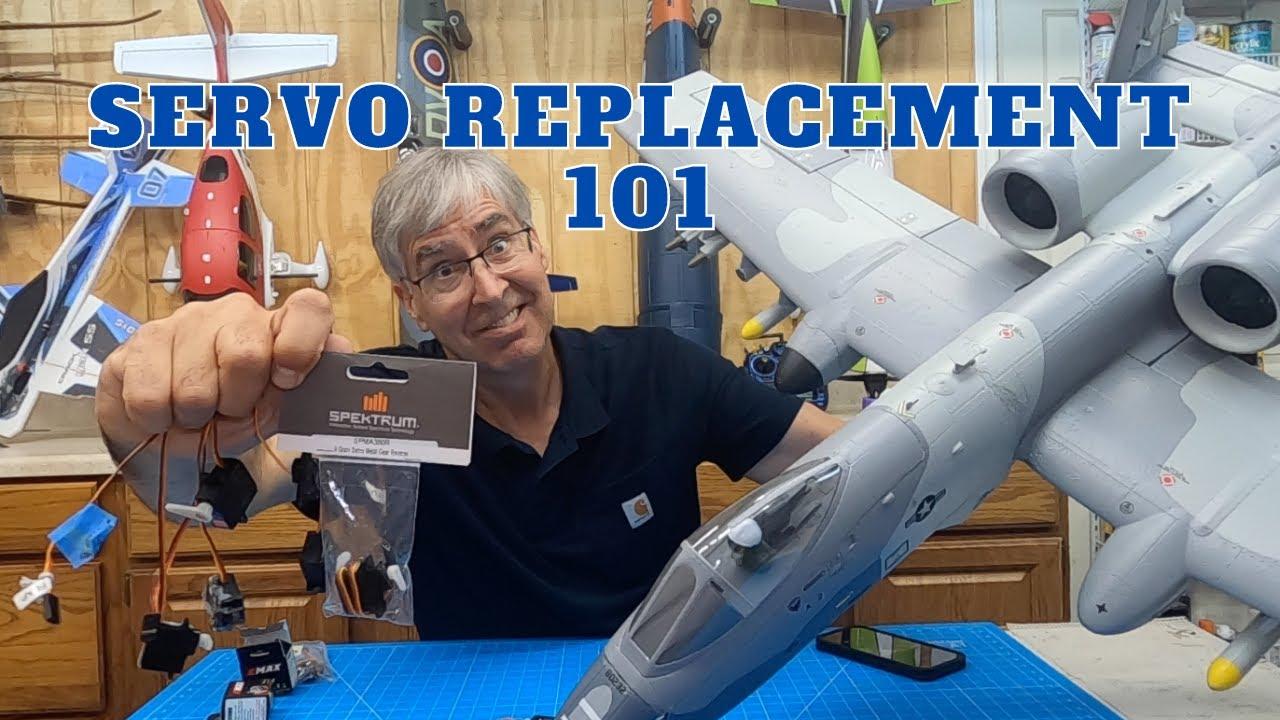Ultimate Guide to RC Airplane Servos
RC airplane servos are an essential element of any model aircraft, responsible for the movement of control surfaces such as the ailerons, rudder, elevator, and flaps. They are the muscle of the RC airplane that makes it fly and maneuver in the air. Servos come in different types, sizes, and torque ratings. Some of the common sizes are micro, mini, and standard servos, and the torque rating determines how strong a servo is, measured in ounces per inch or kilograms per centimeter. When selecting an RC airplane servo, critical factors to consider are size, torque rating, and speed, which determine how quickly the servo can move and are proportional to the signal received from the transmitter.
Selecting the Right Servo for Your RC Airplane
When looking for RC airplane servos, it is essential to understand the size, torque rating and speed as these determine the servo’s compatibility with the particular airplane. There are different types of servos available in the market, and they come in various sizes and torque ratings. The size of a servo depends on the size of the RC airplane, with micro servos suitable for smaller planes and standard servos for larger aircraft. Torque rating determines the servo’s strength and the amount of force it can exert, which is essential for controlling the airplane’s movement in the air. Most servo manufacturers provide torque rating specifications that help in selecting a servo appropriate for the desired application.
Servos vary in speed, and their speed is typically measured in seconds per 60 degrees. High-speed servos provide rapid control surface movement, while slow servos offer slower, more controlled movements. Analog and digital are two types of servos available, with digital servo being more precise and expensive compared to analog servos. Digital servos come with higher resolution, high holding power, and faster response times, making them suitable for advanced RC pilots or aerobatic flying. Some recommended RC airplane servo brands are Hitec, Futaba, and Spektrum that provide high-quality and reliable servos.
An excellent way of comparing the different available servo sizes, torque ratings, and speed is by visiting various RC airplane and model shop websites.
What are the different types of RC airplane servos available in the market?
The different types of RC airplane servos available in the market include analog servos, digital servos, standard servos, and high-torque servos, among others.
Finding the Perfect Servo: A Guide to Choosing the Right Size, Torque, and Speed for Your RC Airplane
Servos are electronic devices that consume power to operate. Servos require a power source, which is usually the onboard flight battery, to receive signal translations to signal movement. If the battery is low, the servo’s response times will decrease, leading to reduced servo movement and airplane performance. Servos have limits on their movement range, determined by the servo horn’s structure and length and the control surface mechanical structure.
Control surfaces with larger deflections require stronger servos with high torque ratings. To get the best servo for your RC airplane, it is essential to visit specialty RC airplane shops or online RC model websites. However, selecting a high-quality servo does not come cheap, and prices vary depending on the servo’s specifications and features.
The table above provides an overview of the different servo sizes, torque ratings, speed, and price ranges for better selection. Micro servos have torque ratings ranging from 10-50 oz/in and speed ranging from 0.08-0.15 sec/60 deg. Mini servos have torque ratings ranging from 50-150 oz/in and speed ranging from 0.08-0.20 sec/60 deg. Standard servos have torque ratings ranging from 150-300+ oz/in and speed ranging from 0.15-0.25+ sec/60 deg.
It is important to select servo size, torque rating, and speed to ensure compatibility with your RC airplane. You can find high-quality servos from top brands like Futaba, Spektrum, and Hitec.
What are some top brands that offer high-quality servos for RC airplanes?
Hitec, Futaba, Spektrum, and Savox are some of the top brands that offer high-quality servos for RC airplanes.
Choosing the Right Servo for Your RC Airplane
When it comes to RC airplane servos, there are several things to consider. One of the most important factors to consider is the speed of the servo. Servo speed is measured in seconds per 60 degrees rotation. High-speed servos are ideal for aerobatic flying and exceptional response times, while slower servos are suitable for trainers and general sport planes that do not require quick response times.
Another critical factor to consider when choosing RC airplane servos is the torque rating of the servo. Generally, lower speed servos typically have a higher torque rating.
It’s also important to note that faster servos may consume power more quickly. Additionally, digital servos generally have a higher response time and accuracy than analog servos. Although digital servos may have a higher cost, they offer additional features and benefits like higher resolution, stronger holding power, and improved accuracy.
When choosing a servo, it’s crucial to consider the type of airplane it will be used in and the type of flying that will be done with that plane. Several websites offer a selection of RC servo brands and models to choose from. HobbyKing, for instance, provides a wide range of servos ranging from tiny micro-servos for small RC planes to full-size standard servos suitable for larger airplanes. Additionally, websites like Amazon.com offer several leading servo brands like Futaba, Spektrum, Hitec, and many more. Thus, buyers have a wide range of options to choose from, depending on their budget and requirements.
What factors should be considered when choosing RC airplane servos?
Factors to consider when choosing RC airplane servos includes size, weight, torque, speed, gear material, type of motor, and compatibility with the receiver and controller.
RC airplane servos: Finding the perfect fit for your model and budget
When it comes to purchasing RC airplane servos, websites like RCGroups provide an excellent platform for buyers to browse through a range of servo brands and models. They offer ample information regarding the technical specifications, torque ratings, and pricing of each product, making it easier for buyers to find the right servo for their airplane model. Additionally, online retailers like Horizon Hobby provide extensive collections of RC airplane servos. Several leading brands like Spektrum, Futaba, and E-flite can be found on their website, giving buyers numerous options to choose from. Therefore, buyers can easily find the right RC airplane servo that meets their needs while staying within their budget.
- Analog servos are cheaper and have a lower resolution than digital servos
- They are best suited for basic models that do not require high precision
- They are a suitable option for beginners who are starting in the hobby and want to minimize their expenses
- Digital servos, on the other hand, are more precise and have a higher resolution than analog servos
- They are a good choice for advanced models that require precise control and accuracy
- Digital servos have a higher holding power than analog servos, allowing them to maintain their position under load better.
Found on websites like Tower Hobbies, Hitec is known for its digital servos that provide excellent holding power and top-quality performance.
What is the difference between analog and digital RC airplane servos?
Analog servos use a continuous electrical signal to control the position of the servo motor, while digital servos use a pulse signal that allows for more precise and reliable control.
Maintenance and Repair Tips for RC Airplane Servos
Proper maintenance of RC airplane servos is crucial to their longevity and reliable performance over time. After prolonged use, servos may experience wear or damage to their gears, motors, or circuitry, affecting their functionality. Regularly inspecting servos for signs of wear and tear and cleaning them can help extend their lifespan.
When a servo is damaged beyond repair, it is essential to replace it with a high-quality replacement servo with identical specifications to ensure seamless operation. RC airplane hobbyists can benefit from online forums and communities such as RCGroups and RC Universe, where they can find information on how to maintain and repair servos. Brands such as Futaba offer servo-specific servicing that ensures about the proper maintenance of their products.
Additionally, several instructional videos are available on YouTube, explaining how to clean, lubricate, and replace servos in RC airplanes. Buyers can explore different options available online to find the right servo for their RC airplane, and they should pay close attention to the size, torque rating, speed, and type of servo they choose. Websites like RCGroups and Horizon Hobby provide ample information about different servos, making it easier for buyers to find the right product. By following maintenance guidelines, hobbyists can rest assured of hassle-free flying and enjoyable experiences with their RC airplanes.
What are some tips for finding the right replacement servo for an RC airplane?
Some tips for finding the right replacement servo for an RC airplane include checking the plane’s specs for compatible servo size and torque ratings, researching the servo brands and models known for reliability and durability, and consulting with experienced RC enthusiasts or hobby shops.
Conclusion
In conclusion, RC airplane servos are an essential component of any aircraft model. They are responsible for the precise movement of control surfaces and contribute significantly to the overall flying experience. Choosing the right servo is crucial for ensuring smooth and responsive operation, and it is essential to consider factors such as size, torque rating, speed, and type when selecting a servo for an RC airplane. With so many options available, buyers can explore different websites and communities to find the best servo for their aircraft. Regular maintenance is also essential to prolong the lifespan of servos and ensure reliable performance. The proper lubrication, cleaning, and inspection can prevent problems before they arise and ensure that the servos function properly for the long term. By following these guidelines, RC airplane hobbyists can enjoy outstanding flying experiences and get the most out of their aircraft models.

